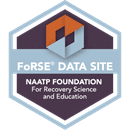Alcoholism and addiction are a disease that affects much more than just the sufferer. This disease can cause pain and wreak havoc in the lives of all who are close to them. It can be excruciating to watch someone we love suffer from this devastating disease. Once they are controlled by their disease, the person we love can transform in heartbreaking ways. They may not resemble their normal self at all. It can be an incredible strain on any relationship, but this is especially true when it’s our significant other or spouse. We may love them with all our heart. Maybe we have been together for some time. But as alcoholism and addiction progress, they can drive us further and further apart, causing more and more pain.
If you find yourself romantically involved with someone who is an alcoholic or addict, do not despair. Whatever type of relationship you have with someone with the disease, there are several things you can do to help you both.
Educate Yourself
Alcoholism and addiction are uniquely misunderstood diseases. There are many things you can do to better understand what your loved one is going through. First and foremost, find a copy of the book Alcoholics Anonymous and read it for yourself. This will go a long way in illuminating the complex condition they have. Doctors, therapists, and other local resources may also be able to provide you with information and insight. Understanding alcoholism and addiction won’t necessarily make things easier or solve any problems, but it will take much of what you’re going through, out of the dark, and bring it into the light. Knowledge is helpful, but there is still more you will need to do if you wish to help yourself and your loved one.
Help Yourself
Once you have learned more about alcoholism and addiction, you will want to get proactive. Therapy can go a long way in helping you understand your personal situation. It can also help begin the healing process and provide stable advice for the actions to take moving forward. You may also want to seek out any trusted friends or family who have been through something similar. They can advise you on how to cope and deal with the turbulent relationship you have with an active alcoholic or addict. No one can really tell us how to live our lives, but we will need to be honest with ourselves. If we are in a relationship that is abusive in any way, we should do whatever is necessary to be safe and healthy.
Additionally, you can take advantage of a group that was specifically built for people in your situation. Called Al-Anon, this fellowship exists across the country and meetings should be easily found. Al-Anon is a 12-Step based fellowship for those who love an alcoholic or addict. The support you find in Al-Anon can guide you through the life-changing 12-Step process while providing understanding, companionship, and community. You are not alone. Many people have been in your shoes, and they are ready to help you through what they themselves have been through. Working the 12-Steps with Al-Anon may be the single most beneficial thing you can do for yourself and your suffering loved one. The 12-Steps are designed uniquely and specifically to help with the problems of alcoholism, addiction, and their effects on people even loved ones of the sufferer.
Understand Your Limits
Being given the opportunity to utilize and experience the 12-Steps for ourselves through Al-Anon is truly a gift. By doing so, we come to understand that we cannot force anyone to work the 12-Steps and we cannot force anyone to get well. We see that our loved one has a problem, and we admit that we have one as well. So we work the 12-Steps for ourselves, on ourselves, to find freedom and healing. We cannot work the 12-Steps for them on their behalf, but we can do it for us. Ideally, the freedom and healing we find through the 12-Step work may become noticeable to them. They may see how well we are doing and ask us how we did it. Surely then we can share the wonders of the 12-Step program with them — and maybe they will become interested in doing it for themselves. But again, we cannot browbeat or force a solution upon them.
That is one of the puzzling elements of alcoholism and addiction. The sufferer must diagnose themselves and engage with the 12-Step solution on purpose, in response to their self-diagnosis. We cannot diagnose anyone as an alcoholic or addict, and we cannot wish the solution to that disease upon them.
Certainly, it is a heartbreaking and difficult thing to love an alcoholic or addict. There is little we can do directly for them, aside from not enabling or kowtowing to them. However, there is much we can do to heal and free ourselves, thereby shining the light of recovery in their direction. We must rebuild ourselves because that will be the most helpful thing we can do for our suffering loved one. If we work the 12-Steps in our own lives, our loved one may see the positive effect it has on us and wish to partake in the solution for themselves. Do not give up hope.
Alcoholism and addiction often affect far more than the person suffering from the disease. When someone is an alcoholic or addict, they can wreak havoc and cause heartache in the lives of anyone close to them. Unfortunately, there is little anyone can do to get them well until they admit to themselves that they have a problem. Once they have diagnosed themselves with alcoholism or addiction, the sufferer and their loved ones can begin the route to healing and recovery. For recovery is possible, and it is possible for practically anyone. The 12-Step program of recovery is available to all who are willing, honest, and open-minded enough to follow through and do the work. The 12-Steps are designed to produce the necessary psychic change and vital spiritual experience that bring lasting recovery. No matter how many times you have failed in the past, it can happen for you. To get started, call Jaywalker Lodge now at (866) 529-9255.



As Chief Executive Officer Bill provides leadership and manage all day-to-day operations of Jaywalker Lodge, an extended care residential addiction treatment program for adult men.





